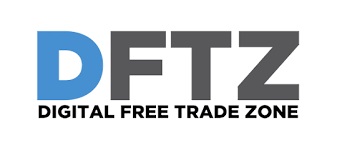KUALA LUMPUR: The government, which is targeting for e-commerce to achieve an annual growth rate of 20% from a 14.3% growth posted in 2017, wants more SMEs to join the Digital Free Trade Zone (DFTZ) project to further push e-commerce in Malaysia.
Deputy International Trade and Industry Minister Dr Ong Kian Ming said e-commerce registered a continuous increase for a period of seven years to RM85.8 billion in 2017, but opined that the target for the sector to reach RM211 billion by 2020 still needs more time.
“We want more SMEs onboard the e-commerce sector. DFTZ has been successful but still, it’s only 5,000 SMEs that are onboard. If we can increase from 5,000 to 25,000, we’ll be well on our way to achieve 20% growth in e-commerce, which still comes from a relatively low penetration rate,” he told a press conference at the E-commerce Day 2018 event here today.
Launched in 2017, DFTZ facilitates SMEs to export their products globally and provide market players with a holistic e-commerce trading experience. To date, over 5,000 SMEs are participating in the DFTZ while industry partners who have onboarded the DFTZ include Alibaba.com (China), Lazada SEA (Asean), JBM (China), eRomman (Middle East), eBay (US), ecommerce.asia (Malaysia), BuyMalaysia (Malaysia) and Jocom (Malaysia).
Ong said e-commerce will also be driven by Malaysia’s signing of the Asean Agreement on Electronic Commerce on Nov 12, 2018, a concerted effort between 10 countries to smoothen cross border e-commerce transactions by reducing barriers and lowering entry costs.
He said the agreement has been the result of a one year deliberation where the pact wants to promote greater cross border e-commerce trade and reduce some of the red tapes associated with e-commerce.
“We need to be able to access the big markets, and to allow access to some of the players to come into Malaysia as well. Not only do we want to export more, we want Malaysia to have exposure to different products from different Asean countries. We need to have free flow of goods both ways,” said Ong, adding that this includes some of the smaller countries that has not been on the radar of Malaysian consumers.
The agreement is expected to streamline regional trade rules governing e-commerce to promote greater digital connectivity and lower operating barriers to entry for businesses. This will enhance the regional trade architecture for e-commerce, realise freer movement of e-commerce goods across Southeast Asia and support the regional expansion of companies based in Asean.
He said the government, through the National E-Commerce Council (NECC), will continue to chart the growth and development of e-commerce in the country through the implementation of the National E-Commerce Strategic Roadmap.
Since its establishment in 2016, NECC has worked towards enhancing the development and competitiveness of the e-commerce ecosystem, including having over 120,000 online businesses registered with the Companies Commission of Malaysia and 20,000 SMEs registered with the Go E-commerce platform.










